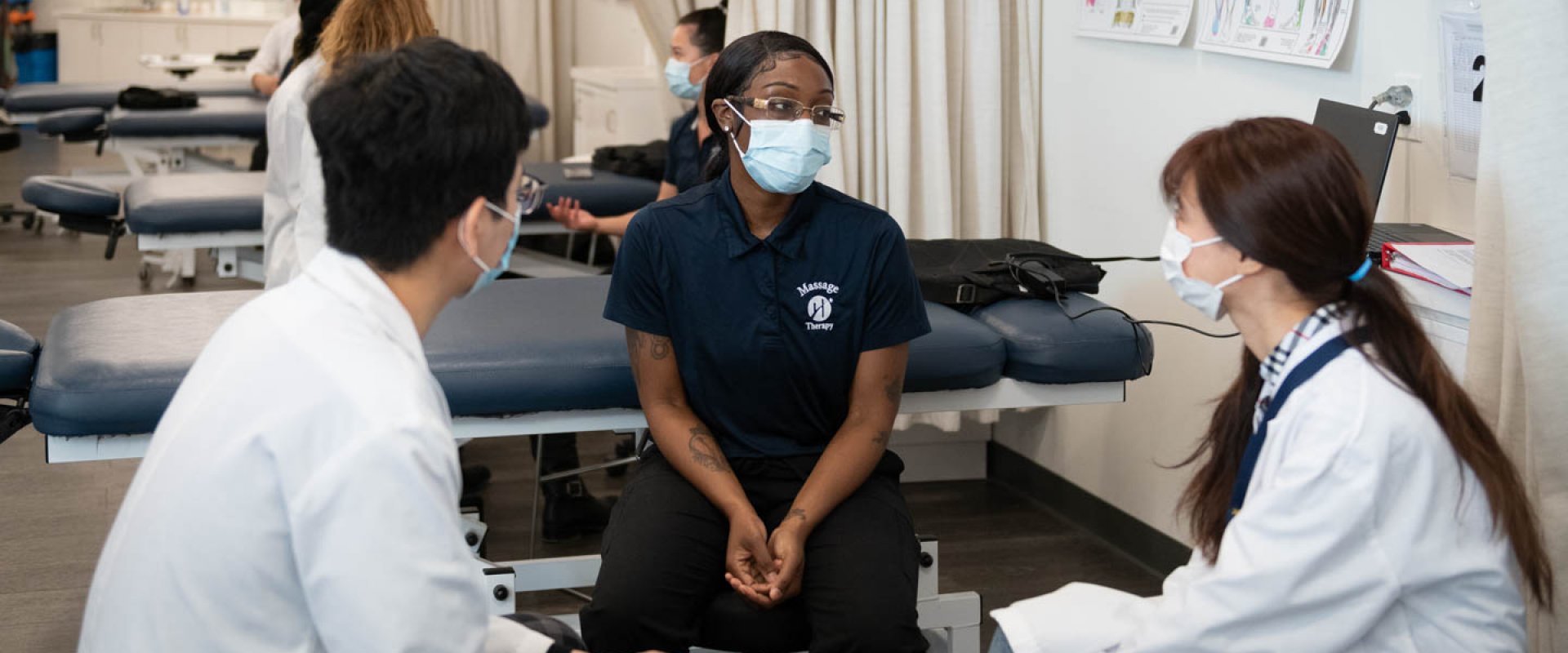Imagine a system where various professionals seamlessly collaborate, ensuring the best possible outcomes. Within the Faculty of Health Sciences & Wellness (FHSW), this vision is becoming a reality through our commitment to Interprofessional Education (IPE) — a transformative approach to education where traditional boundaries between programs are eliminated.
Within FHSW, we have embraced IPE as a pedagogical method that can achieve both program learning outcomes and interprofessional learning outcomes. By integrating IPE into our curriculum, students from different programs learn about, from and with each other to prepare them with the essential collaboration skills needed to thrive in a rapidly evolving workforce.
We believe that early and frequent exposure to IPE is essential for students to develop not only as competent professionals but also as effective team members. Achieving this level of collaboration requires a collective effort across our Faculty, including explicit leadership support as well as faculty and support staff buy-in. We have embraced the mantra, ‘Go slow to go fast,’ understanding that a solid foundation of interprofessional collaboration amongst faculty and staff will propel our graduates forward.
An early needs assessment revealed that many professors lacked experience with IPE, having been educated in silos themselves and learning interprofessional collaboration on the job. Recognizing the need for faculty professional development, we created faculty IPE orientation modules that provide a comprehensive introduction to the what, why, and how of IPE.
Additionally, a team of faculty from across FHSW developed the FHSW IPE Competency Framework, a set of scaffolded learning outcomes informed by four existing frameworks, including the Humber Learning Outcomes. This framework supports faculty in identifying IPE learning outcomes relevant to their learners’ needs and informs the development of authentic interprofessional learning activities.
To ensure learners have a solid foundation, we have developed a foundational ‘IPE 101 curriculum’, open to all FHSW students. After this initial exposure, students engage in tailored IPE learning activities specific to their professions. Our intention is to embed IPE early and frequently throughout their learning journey, socializing students as collaborators who are ready to drive change within the systems they join after graduating.
Innovating together to overcome logistical barriers
It is a truth universally acknowledged in this field that while the will and ideas behind IPE are strong, logistical coordination can often pose a challenge. To overcome this barrier, we have devised several innovative solutions. Program coordinators interested in embedding IPE engage in collaborative scheduling to ensure courses suited for IPE happen at the same time. Additionally, some programs refrain from scheduling classes between 3:20 p.m. – 6:00 p.m. on Wednesdays to give students the opportunity to attend “IPE Wednesdays”; a series of interactive IPE workshops facilitated by a team of faculty across FHSW. Other programs have even designated specific days for IPE simulations or rearranged classes to ensure their students were available for special IPE events. The success of these initiatives is owed to the unwavering support from administrators, faculty, and support staff to overcome these planning barriers.
Within FHSW, IPE is akin to a snowball that started rolling slowly but has gained remarkable momentum and growth. Our students are asking ‘Why aren’t we doing more of this?!’ Our faculty and staff are seeking creative ways to overcome the challenges, and FHSW leadership is invested in supporting the work we have begun. Collectively, we are committed to nurturing collaboration and empowering our future professionals with the necessary skills to excel in the evolving workforce.
Sarah Wilkinson, R.Kin., PhD.
Program Coordinator, Interprofessional Education
Faculty of Health Sciences & Wellness
Image credit: Kevin Van Paassen

